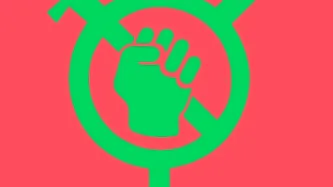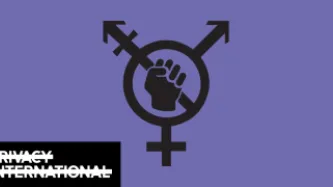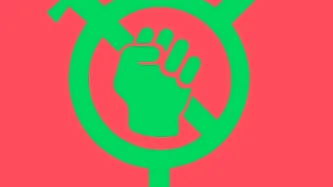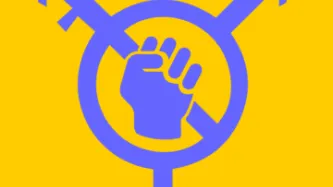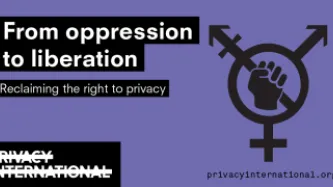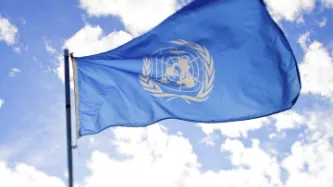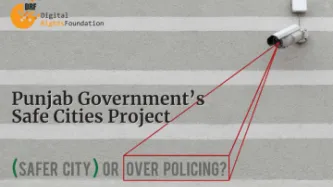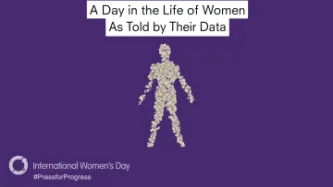Search
Content type: Examples
US campaigners supported by the Catholic church are promoting the app Femm, which collects sensitive data about women's sexual lives and aim to scare women from using hormonal birth control, in rural Nigeria. Femm received a $100,000 from the Papal Foundation to promote their app.
https://www.theguardian.com/society/2019/jul/15/femm-menstruation-tracking-app-nigeria-anti-pill-campaignersus-
Author: Jessica Glenza
Publication: The Guardian
Content type: Examples
In this piece Gavin Sheridan, transparency campaigner and CEO of legal intelligence company Vizlegal, argues for the need for a regulatory oversight to control the impact big tech companies and force them to be more transparent.
https://www.theguardian.com/commentisfree/2018/may/13/ireland-abortion-mark-zuckerberg-referendum
Author: Gavin Sheridan
Publication: The Guardian
Content type: Examples
The pregnancy apps many women were using in December 2018 proved to be incapable of handling miscarriages, even though up to 20% of all known pregnancies end this way. There are only two choices: allow the apps to continue sending alerts celebrating the pregnancy's progress or delete the pregnancy entirely, losing all the records they'd saved - information that doctors routinely request. Many menstruation apps, similarly, lack the ability to adapt to long breaks and disrupted cycles, and many…
Content type: Examples
Le Monde exposed anti-IVG (anti-abortion) advertising on Facebook as part of a borader campaign led by anti-abortion website IVG.net. The advertisement relied on stock photos and fake testimonies posted in public Facebook groups and promoted to young women. Most of the posts attempt to promote the idea that abortion leads to mental health issues, a fact that has been proved to be falacious.
https://www.lemonde.fr/les-decodeurs/article/2018/07/11/les-anti-ivg-ciblent-les-jeunes-femmes-grace-aux…
Content type: Examples
French website IVG.net, first Google result when typing IVG (Interuption Volontaire de Grossesse or abortion in french), has been exposed as being anti-abortion website spreading misinformation. Offering an official looking "Numero vert" (free to call phone number number), IVG.net attempts to convince pregnant women calling the service that abortion is a high risk operation which will have terrible impact on their health and personal life, pressuring women to not undertake such operation. The…
Content type: Long Read
Photo by David Werbrouck on Unsplash
This is an ongoing series about the ways in which those searching for abortion information and procedures are being traced and tracked online. This work is part of a broader programme of work aimed at safeguarding the dignity of people by challenging current power dynamics, and redefining our relationship with governments, companies, and within our own communities. As an enabling right, privacy plays an important role in supporting the exercise of…
Content type: Examples
The New York City public benefits system has been criticized for its punitive design, how it too often disciplines, rather than helps, people who are legally entitled to benefits. According to Mariana Chilton, the public benefits system is designed to control, surveil, and penalize low-income people, and it is women of colour who disproportionately bear these burdens. Chilton highlights how the violent treatment of Jazmine Headley and her baby in a public assistance waiting room in December…
Content type: Examples
The DWP relies on anti-fraud officers who go and spy on benefit claimants to verify their claims. For instance, claimants who declare that they are a lone parent may end up with an officer trying to verify there is no one else living in the house. And once they are confident that the alleged lone parent is not actually single, their next step will be to find out if the other person is employed. In order to decide which household to target, the DWP relies on a “tip-off” system. People are in…
Content type: Examples
In August 2017, it was reported that a researcher scraped videos of transgender Youtubers documenting their transition process without informing them or asking their permission, as part of an attempt to train artificial intelligence facial recognition software to be able to identify transgender people after they have transitioned.
These videos were primarily of transgender people sharing the progress and results of hormone replacement therapy, including video diaries and time-lapse videos. The…
Content type: News & Analysis
Earlier this month, Brunei attracted international condemnation for a new law that will make gay sex punishable by death. While this is clearly abhorrent, Brunei is not the only country with explicit anti-gay laws.
Homosexuality is criminalised in over 70 countries around the world. And even in countries where gay sex is legal, such as the US, the LGBTIQ+ community still faces discriminatory surveillance and profiling by law enforcement agencies.
Through using the Internet and mobile apps,…
Content type: Advocacy
Cases of female and gender diverse public figures being targeted with online harassment have become sadly common in the news. Female politicians are particularly affected – although journalists and in particular sports commentators are also frequently targeted as well. In some cases, the harassment goes as far death and rape threat for women and gender diverse people who dare speaking publicly. Beyond the freedom of speech implications – as we risk seeing women and gender diverse people being…
Content type: News & Analysis
The Committee on Foreign Investment in the United States (CFIUS) is trying to force the Chinese owner of the gay dating app Grindr to sell the app because of national security concerns. This is the first time the committee has considered the national security implications of a foreign social media app.
Early last year, the Chinese company Beijing Kunlun Tech purchased the Californian-based dating app. Kulun had already owned 60 per cent of Grindr since 2016. Yet, it is only now – with an…
Content type: News & Analysis
At Privacy International, we talk about: “the world being on fire.”We say it to talk about the recurring threats to our democracies, the elections of authoritarian leaders, the current political climate… Or the actual climate. More often than not, we use it to talk about the (lack of) security in the design and implementation of computer systems.
But there is another kind of fire. The fourth wave of feminism – the one that contributed to the protests following the 2012 gang rape of…
Content type: News & Analysis
Image source: Oxfam
This piece was co-authored with Ruhiya Seward, Senior Program Officer at IDRC and originally appeared here.
What if in trying to make development more equitable we’re creating risks that disproportionately impact people based on their gender?
Development programming aims to be both sustainable and equitable in part by recognizing the implications of inequality in its many forms, whether by gender, ethnicity, socioeconomic status, or geolocation. The adoption of the…
Content type: Video
Video courtesy of CPDP (https://www.cpdpconferences.org/)
What is the impact of online gender-based violence on survivors? What should be the role of companies in fighting this phenomenon? What is the link between the right to privacy? In this panel, which took place at CPDP in February 2019, academics, civil society and government representatives discuss the issue of online gender based violence with a privacy lens.
Chair: Gloria González Fuster, VUB -LSTS (BE)
Moderator: Valerie…
Content type: Long Read
For International Women’s Day 2019, Privacy International looks at some of the key themes around the intersection of gender rights and the right to privacy and we review the work we and our partners have done on those topics.
When dealing with cases of non-consensual sharing of intimate images, often known as ‘revenge porn,’ or doxxing, where a person’s personal details are shared publicly, the link between privacy and online-gender-based violence is very clear. Privacy…
Content type: News & Analysis
Creative Commons Photo Credit: Source
In this first episode of the Gender and Privacy Series, we go to Manila in the Philippines to meet two transgender right activists - Naomi Fontanos and AR Arcon. We discuss what the right to privacy means to them and their fight against the government's plan to deploy an ID card system.
Listen to the podcast here.
Content type: News & Analysis
Creative Commons Photo Credit: Source
In the third episode of the Gender and Privacy Series, we talk about sex and privacy with two female activists: Sarah Jamie Lewis, an expert on the security of internet-connected sex toys, and Joana Varon, founder of the female-led Brazilian NGO Coding Rights.
Listen to the podcast here.
Content type: Report
Whose privacy are we fighting for when we say we defend the right to privacy? In this report we take a hard look at the right to privacy and its reality for women, trans and gender diverse people. We highlight how historically privacy has been appropriated by patriarchal rule and systems of oppression to keep women, trans and gender diverse people in the private sphere.
For us, this report is also an opportunity to show how surveillance and data exploitation are also uniquely affecting…
Content type: Long Read
The Privacy International Network is celebrating Data Privacy Week, where we’ll be talking about how trends in surveillance and data exploitation are increasingly affecting our right to privacy. Join the conversation on Twitter using #dataprivacyweek.
It is often communities who are already the most marginalised who are at risk because of the privacy invasions of data-intensive systems. Across the globe, we see the dangers of identity systems; the harms of online violence against women and the…
Content type: News & Analysis
Photo credit: US Immigration and Customs Enforcement
The trial of Mexican drug lord Joaquin “El Chapo” Guzman started in New York back in November 2018. But last week, the jurors were presented with a trove of new key evidence: dozens of text messages exchanged between Guzman, his wife, and his mistresses.
The reason behind this set of revelations? Guzman had been spying on his wife and mistresses, using publicly-available surveillance software called FlexiSpy. Once installed on his targets…
Content type: News & Analysis
Creative Commons Photo Credit: Source
In September 2018, a month after Argentina lawmakers voted against the legalisation of abortion, we spoke to Eduardo Ferreyra from the Buenos Aires-based Asociacion por los Derechos Civiles about the role of privacy in the abortion debate. Also joining us in this second episode of the Gender and Privacy Series is Ambika Tandon from the Centre for Internet and Society in India to discuss the intersection between privacy and bodily autonomy.…
Content type: Advocacy
In response to the consultation on ‘Gender perspectives on Privacy’ by the UN Special Rapporteur on the right to privacy, Privacy International presented a submission with its observations.
Content type: Long Read
Who are you? The Challenges of Identity and Identification
“Identity” is a word that covers an incredible range of contested, deeply personal and highly politicised questions. These range from the political and the sociological, through to the psychological and philosophical. A question such as “who are you?” can elicit a multiplicity of responses, none of which are straightforward, are sometimes highly contextual, and are often deeply contested.
However, there is something of an attempt to…
Content type: News & Analysis
By Digital Rights Foundation, Pakistan
What is a safe city?
The answer to this question is not uniform; in fact it varies according to who you ask.
In a focus group conducted by Digital Rights Foundation in May of last year, consisting of women rights activists from across Pakistan, the answer meant imagining a city that was not only safe for women, in terms of their physical safety, but also welcoming for women and non-binary individuals in its architecture and facilities. Women expressed…
Content type: News & Analysis
Written by Karisma Foundation
7:03: Catalina leaves her apartment and a security camera follows her down the hall, another one observes her in the elevator while she fixes her hair. As she exits the building, the warden tells her she doesn’t have to fix her hair because she is already pretty as she is. She gets to the parking lot where another two cameras look at her while she gets into her car.
8:00: She is heading to an open data workshop organized by the Colombian government in a…
Content type: Long Read
To mark International Women’s Day 2018, Privacy International and some of our partner organisations - Datos Protegidos, Derechos Digitales, the National Coalition for Human Rights Defenders-Kenya, the Karisma Foundation, and the Foundation for Media Alternatives – are telling the stories of women across the world as told by their data over the next seven days (for us, it’s International Women’s Week!).
Gender inequality has many complex dimensions and data exploitation is yet another.…
Content type: News & Analysis
Written by Privacy International
07:06: Camille’s smart pillow sends a signal to her smartphone that it’s time for her to wake up. She checks the quality of sleep on the app – last night was not great. Because the pillow tracks the motion in her bed, the company knows what else she may (or may not) have been up to. But the company doesn’t just track her when she is in bed. By downloading the app, Camille has also authorised access to her location wherever she goes, her camera, her contact…
Content type: News & Analysis
Written by the Foundation for Media Alternatives
7:01: Naomi wakes up and gets ready for the day.
7:58: Naomi books an Uber ride to Bonifacio Global City (BGC), where she has a meeting. She pays with her credit card. While Naomi is waiting for her Uber, she googles restaurant options for her dinner meeting in Ortigas.
9:00: While her Uber ride is stuck in traffic on EDSA (a limited access highway circling Manilla), Naomi’s phone automatically connects to the free WiFi offered by the…
Content type: News & Analysis
Written by Datos Protegidos
04:16: Carolina can´t sleep. She grabs her mobile from the nightstand next to her bed to check her WhatsApp notifications and read some tweets. She decides to disconnect to and tries to go back to sleep.
07:00: Carolina is woken by her mobile phone alarm. She picks it up and checks her social networks and messages again. To her astonishment, she finds a message in a WhatsApp group from her former college classmate Pablo at 5:25 asking if anyone was still…







